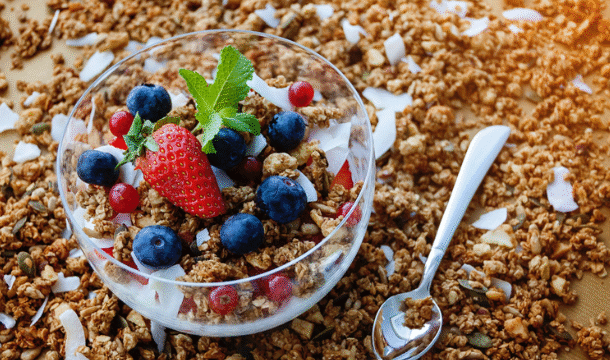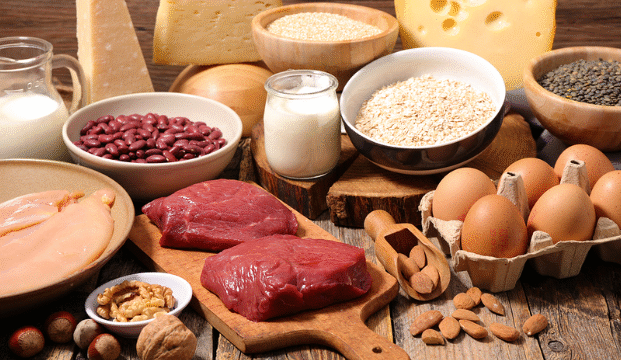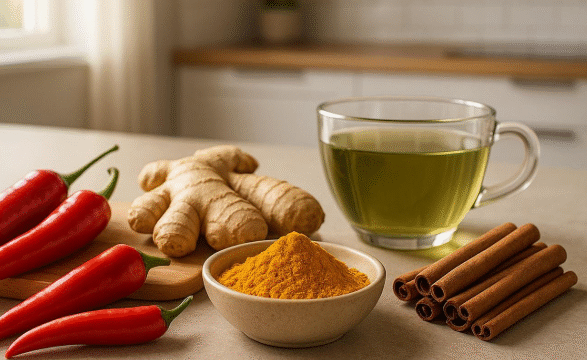What Does “Clean Eating” Mean?
Clean eating isn’t a strict diet—it’s about focusing on foods in their most natural state.
That means more fruits, vegetables, lean proteins, whole grains, and healthy fats, and fewer highly processed, sugary, or refined products.
This approach helps balance hunger, stabilize energy, and encourage sustainable weight management.
Clean Eating Foods That Support Fat Loss
1. Leafy Greens
Spinach, kale, and Swiss chard are low in calories but packed with vitamins, minerals, and fiber that help keep you full.
2. Lean Proteins
Chicken breast, fish, tofu, and eggs provide protein that promotes satiety and supports muscle maintenance, which plays a role in healthy metabolism.
3. Whole Grains
Quinoa, oats, and brown rice digest slowly, preventing blood sugar spikes and keeping you satisfied longer than refined grains.
4. Fruits
Apples, berries, and citrus fruits offer natural sweetness with fiber, making them ideal snacks that support better appetite control.
5. Nuts and Seeds
Almonds, chia seeds, and flaxseeds are nutrient-dense sources of healthy fats and protein that help reduce cravings.
6. Legumes
Beans, chickpeas, and lentils are rich in fiber and protein, making them one of the best clean sources of plant-based satiety.
7. Healthy Oils
Extra virgin olive oil and avocado oil add flavor and healthy fats to meals, helping you feel satisfied without overindulging.
Why Clean Eating Helps With Weight Management
- Fewer empty calories: Whole foods are more filling and less calorie-dense than processed snacks.
- Stable energy: Clean carbs and proteins support consistent energy throughout the day.
- Natural portion control: High-fiber foods make you feel full before overeating.






